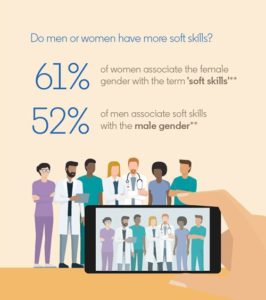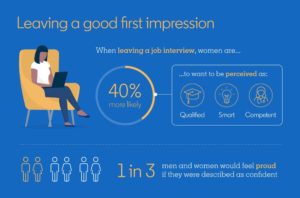Language At Work Impacts Inclusion, Cautions LinkedIn
The UAE continues to strongly advocate equality and champion inclusion in the Year of Tolerance, which has also helped set the stage for a compelling narrative around gender parity. Women are increasingly being called upon to play an equal role in advancing progress and economic development, with the new government mandate to ensure 50 percent female representation in the Federal National Council (FNC) serving as a prime example.
However, the conversation on equality is not restricted to opportunities and pay parity. It is also relevant in HR practices as well as in the way men and women present themselves during interviews and business meetings.
The latest research on the matter by LinkedIn, the world’s largest professional network, provides an overview of the different words recruiters and job seekers use during the hiring process, and offers insights on how this could impact their professional experiences and the corporate culture.
The global report, Language Matters: How Words Impact Men and Women in the Workplace, surveyed over 12,000 employees and 3,000 employers, and analyzed an enormous number of data points created by more than 645 million members on LinkedIn. Among its most interesting findings, t he research has found that 44 percent of women would be discouraged from applying for a position if the word ‘aggressive’ was included in the job description, as is the case with over 50,000 job listings on LinkedIn. In addition, one in four women would be reluctant to work in a post described as ‘demanding’.
In terms of self-description, men and women appear to assess themselves differently at work. While both genders apply the same top three attributes to highlight their abilities in a job interview – ‘hard-working’, ‘good at my job’, and ‘confident’ – women are 40 percent more likely than men to want the interviewer to perceive them as ‘qualified’, ‘smart’, and ‘competent’.
But there is more to the hiring process than technical skills or personality descriptions. An impressive 92 percent of hiring managers feel that soft skills matter as much as, if not more than hard skills. Interestingly, both men and women think soft skills are their forte. Sixty-one percent of the women surveyed associate soft skills with their own gender, while 52 percent of men ascribe them to the male gender. Despite these findings, in practice, women are more likely to actively showcase their soft skills on their LinkedIn profile, as opposed to men, who tend to focus on their hard skills.
Arda Atalay, Head of MENA Private Sector at LinkedIn Talent Solutions, said: “The report is the latest of a string of research projects LinkedIn has embarked on to empower companies to adopt a more diverse workforce. Paying special attention to word choices during interviews, in talent communication and branding materials, as well as on social media can go a long way in helping employers attract and retain more inclusive teams that, ultimately, have a positive business impact. “
The study also examined how international media portrays key global leaders. For instance, the report reveals that although women and men equally see themselves as powerful in the workplace, the media uses the word ‘powerful’ nearly six times more in connection with Mark Zuckerberg, CEO and founder of Facebook, compared to Sheryl Sandberg, the COO of the company.
The report clearly shows that language selection has a significant impact on the hiring process – both in terms of how companies choose to describe themselves and in their tone of communication. With culture and diversity now among the top five areas for HR analytics, leaders are increasingly turning to insights to guide talent strategies.










